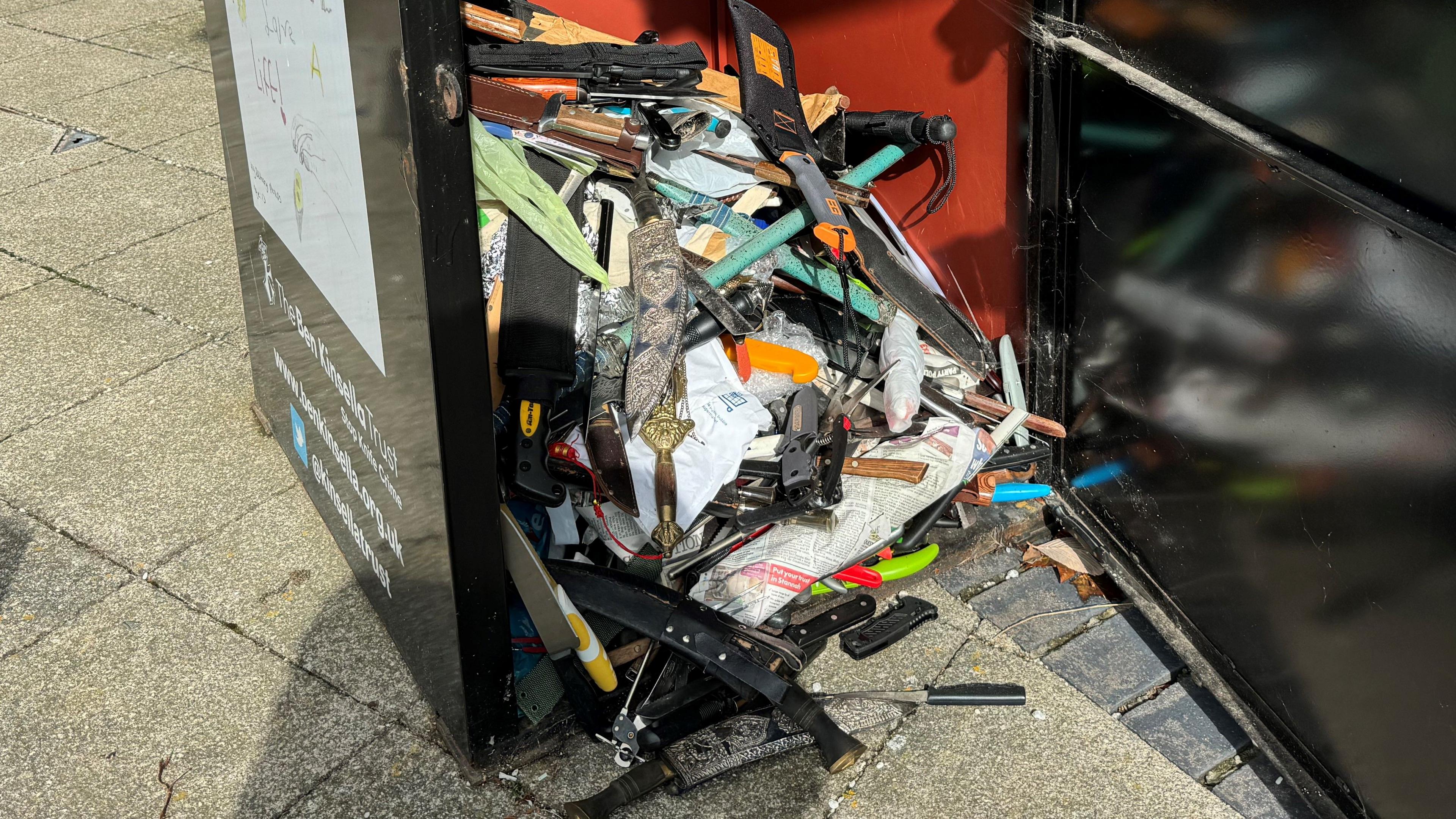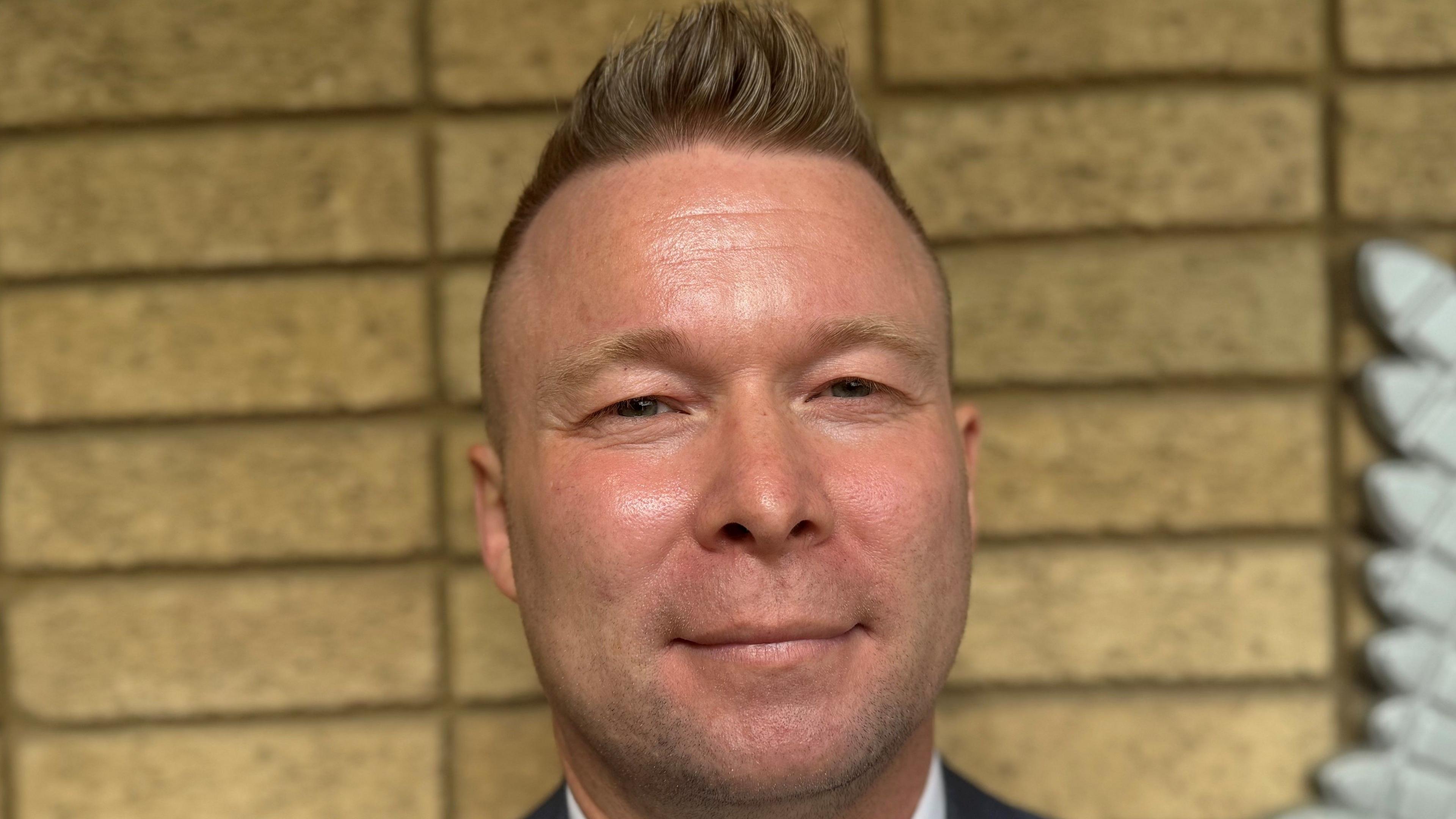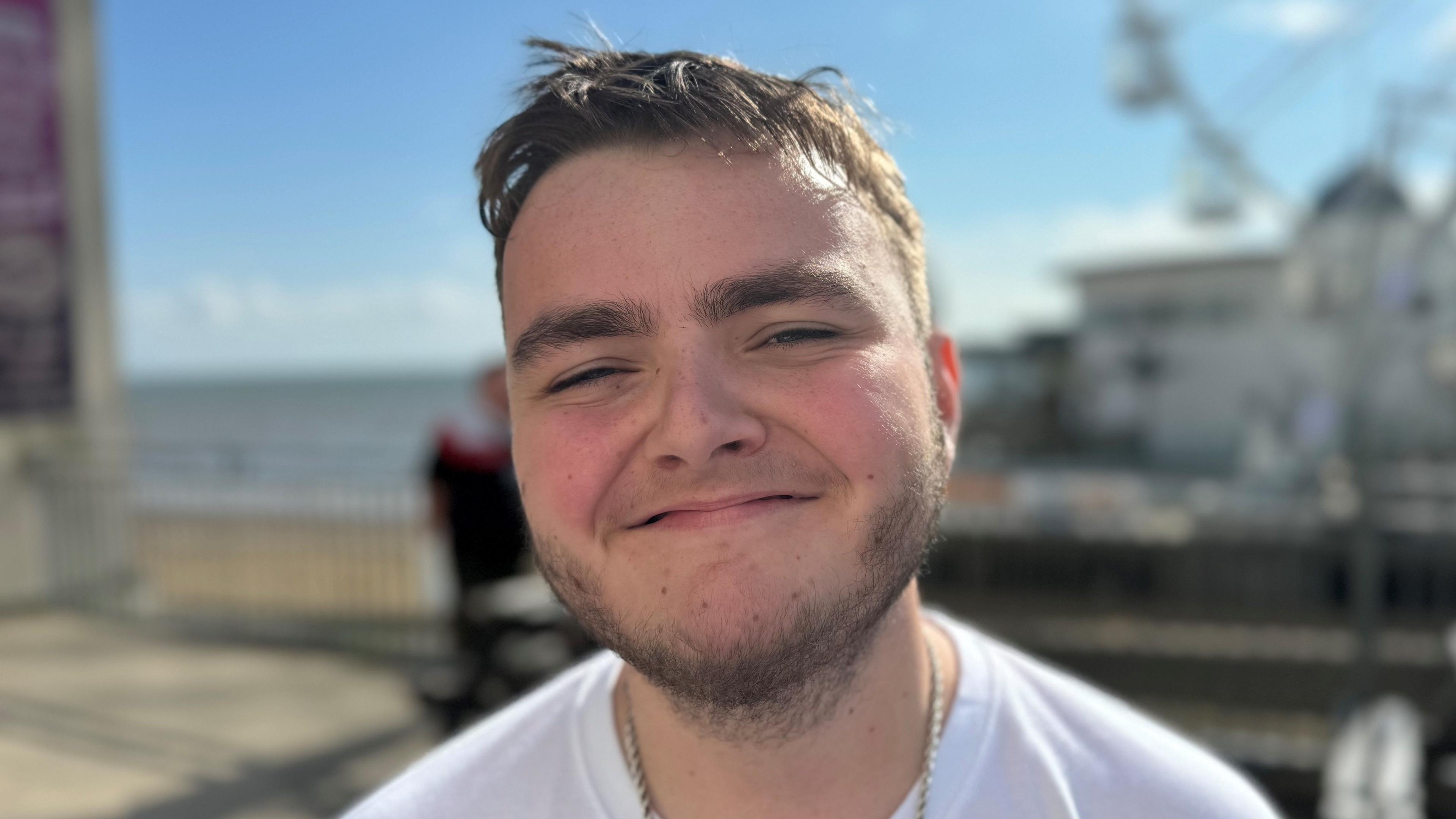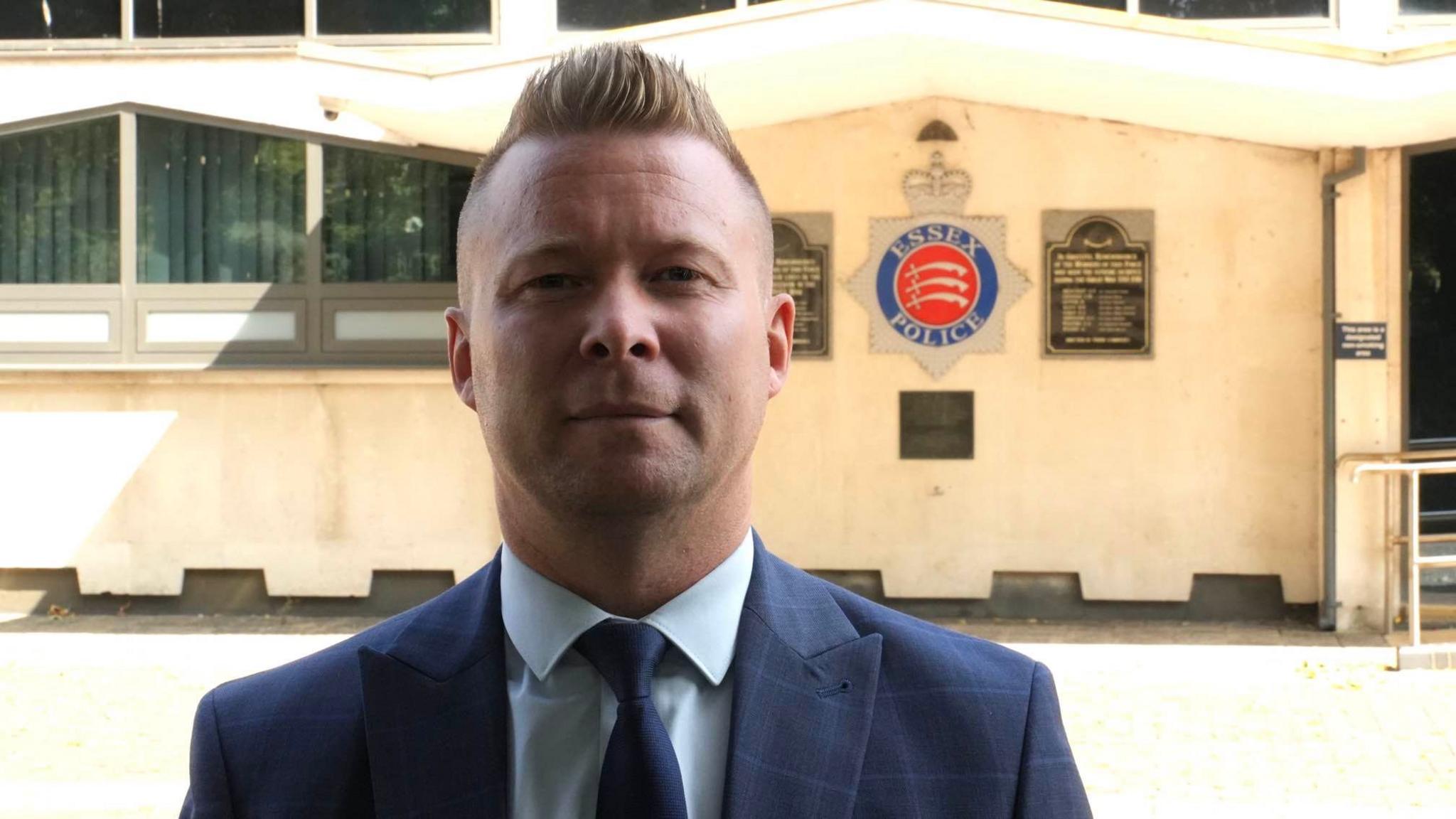Thousands of knives left in police surrender bins

More than 1,000 blades were removed from a knife bin in Clacton-on-Sea on Monday
- Published
Thousands of weapons were left in knife bins in Essex in the past six months.
Essex Police, external estimated at least 1,000 blades deposited outside police stations in both Chelmsford and Clacton-on-Sea were removed on Monday morning.
Bins outside 15 police stations in the county will all be cleared this week to coincide with a new law banning zombie-style knives and machetes, which is being introduced on Tuesday.
Det Ch Insp Ian Hughes said the bins were emptied twice a year and that knife crime had reduced in the county by 2% in the past three months.

Det Ch Insp Ian Hughes said 15 knife bins in Essex were emptied twice a year
People in England and Wales had from 26 August to 23 September to surrender the newly banned knives to police stations and claim compensation.
More than 200 blades were surrendered in Essex, about half of which met the criteria for compensation to be paid, Det Ch Insp Hughes said.
He said the force would carry on working to educate young people and use technology, like knife arches, to tackle violence.
"We understand that there are these myths within communities where people feel unsafe, and that's something we want to take really seriously alongside our partners to make sure we dispel these myths," he told the BBC.
"There's a real, clear connection between people feeling unsafe and carrying knives themselves, and that in itself will put people at further risk."

Brendan Young said he often worried about being in Clacton-on-Sea at night
Brendan Young, 20, said he was worried about going out at night in Clacton-on-Sea but that it had given him "a bit of comfort" to know how many weapons had been taken off the town's streets.
"When I got to about 16 or 17... I started to realise the world isn't just a normal, safe place," he said.
"It is dangerous, and people will carry knives and they will use them, and I think it's cowardly."
'Worrying'
Jade Rayfield, 30, said it was "awful" to learn how many knives had been surrendered in the seaside town.
"I've got a little boy, he's only two, and it's a bit worrying what he's going to be growing up into," she said while visiting the beach with her son.
Ellie Ingram, whose son Tom was stabbed to death in Colchester in 2013, said she thought 15 amnesty bins was not enough for a county the size of Essex.
"There should be one in every town, and perhaps every school," she said.
"I haven't got a problem with any incentive to get knives off the street. There's clearly a need for some kind of incentive.
"If that's what it takes - to give someone a bit of money to get a knife off the street - I can't argue with that."
Get in touch
Do you have a story suggestion for Essex?
Follow Essex news on BBC Sounds, Facebook, external, Instagram, external and X, external.
Related topics
- Published26 August 2024

- Published2 August 2024
